#Allan Kozinn and Adrian Sinclair
Text
There’s no hard feelings or anything, but you just don’t hang around with your ex-wife. We’ve completely finished. ’Cos, you know, I’m just not that keen on John after all he’s done. I mean, you can be friendly with someone, and they can shit on you, and you’re just a fool if you keep friends with them. I’m not just going to lie down and let him shit on me again. I think he’s a bit daft, to tell you the truth. I talked to him about the Klein thing, and he’s so misinformed it’s ridiculous.
— Paul interviewed by student journalist Ian McNulty for the Hull University Torch, May 1972 [From The McCartney Legacy, Volume 1: 1969 – 1973 by Allan Kozinn and Adrian Sinclair (2022)]
#Paul McCartney#John Lennon#The Beatles#(Wow one of the rare moments he did not hold back)#(To a student writer of all people lol)#1972#The McCartney Legacy#Allan Kozinn and Adrian Sinclair#(To the recent anon - hope you see this!)#(I’ve only had the book for a few days but IMO yes it’s worth buying: well researched so far.)#(This whole band was daft. Love them.)
444 notes
·
View notes
Text
The McCartney Legacy, Volume 1, 1969-73 - A Review
Cool cover, huh?
That cover is a harbinger of what is contained inside.
Let’s get straight to the point – this is one of the best studies of Paul McCartney and his solo music you are going to find. Epic and essential, full stop.
The McCartney Legacy by Allan Kozinn and Adrian Sinclair is the first installment of what will become a multi-volume set. As its subtitle suggests, Volume 1 captures…
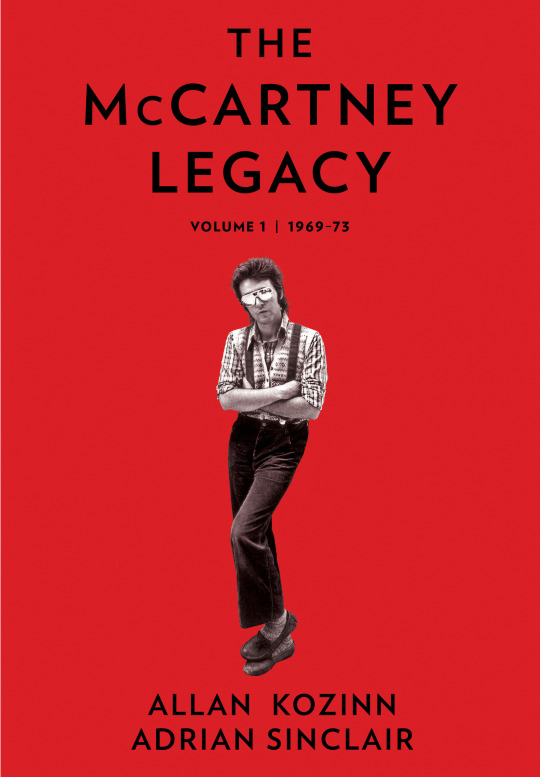
View On WordPress
#Adrian Sinclair#Allan Kozinn#Beatles#Beatles Books#Linda McCartney#McCartney Biography#Music#Paul McCartney#The McCartney Legacy#Wings
10 notes
·
View notes
Text
Beatles, Things We Said Today #407 – McCartney’s Mid-70s Recording Venues, with Adrian Sinclair Download
This was the Things We Said Today panel at the Fest for Beatles Fans at the TWA Hotel, February 10, 2024. Ken Michaels, Darren Devivo and Allan Kozinn were joined by Allan’s McCartney Legacy co-author, Adrian Sinclair, to discuss Paul’s penchant in the mid-70s (i.e., the period covered in The McCartney Legacy Vols. 1 & 2) for recording outside London. [Thanks to Andy Nicholes of the Two Legs podcast for taping the session. Apologies for any sound issues - this was a live event.]
As always, we welcome your thoughts about this episode of the show or any other episode. We invite you to send your comments about this or any of our other shows to our email address [email protected], join our "Things We Said Today Beatles Fans" Facebook page and comment there, tweet us at @thingswesaidfab or catch us each on Facebook and give us your thoughts. And we thank you very much for listening. You can hear and download our show on Podbean, the Podbean app and iTunes and stream us through the Tune In Radio app and from our very own YouTube page.
0 notes
Text
Exclusive: Steve Holley reveals Linda would drunk-shame Paul from horseback
I don't know how interested any of you are in the Fest for Beatles Fans, which I've attended twice now, but I thought everyone needed to hear this story.

I attended a panel with Adrian Sinclair, Steve Holley, Laurence Juber, and Allan Kozinn. The two on the ends wrote The McCartney Legacy. The other two were in Wings during Back to the Egg.
Recording "Arrow Through Me," which I've confirmed with the McCartney Project was done in Campbeltown, Scotland, they finished up a long day and went out to the pub. According to Steve Holley, they both drank everyone else under the table and around dawn, they emerged, staggering, to the street. Paul stopped and said, "d'you hear that?"
"What?"
"Do you hear a horse?"
Steve did, in fact, hear a horse.
"It's my wife," Paul said. "I'm in trouble."
Indeed, Linda rode up on a horse, stopped in front of them, and looked down. "Look at the state of you two," she said. "You disgust me." Steve said something about asking her if she'd let that man marry her daughter, which I didn't quite get, though she said, "Yes, but that's not the issue right now."
And Paul got up behind her and they rode away.
The existence of this story heavily implies this was not the only time Linda had to pick up Paul on a horse. We imagine that, upon discovering Paul wasn't yet home, she merely had to step outside, whistle, and her steed appeared, ready to shame Paul McCartney.
#fest for Beatles Fans#Steve Holley#paul mccartney#linda mccartney#arrow through me#back to the egg#Kris talks a lot
287 notes
·
View notes
Text
The AKOM Holiday Shopping Guide!
Here are some items we enjoyed this year, great choices for yourself or that Special Beatle Person in your life.
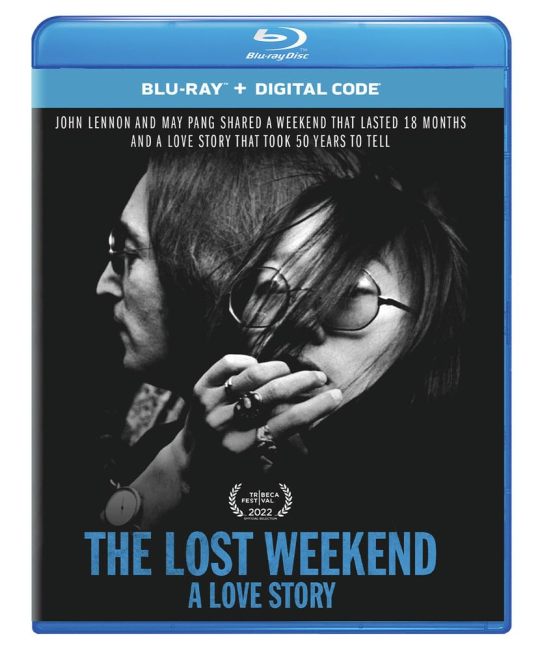
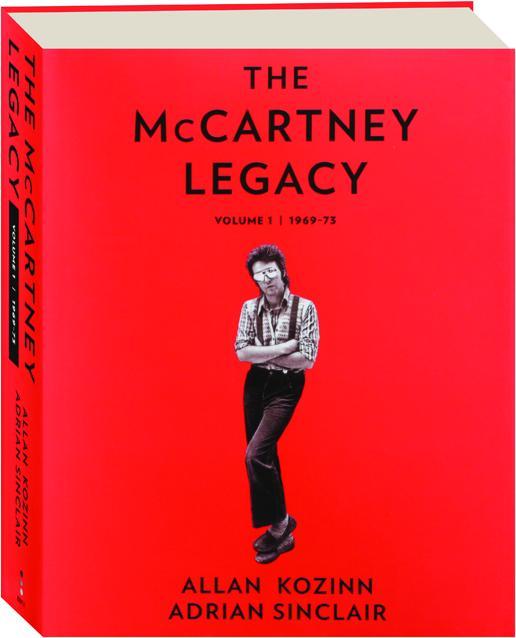
The Lost Weekend A Love Story (DVD, Blu-Ray, Streaming) 🥤
The McCartney Legacy by Allan Kozinn and Adrian Sinclair (Hardback and audio book!) 🐏
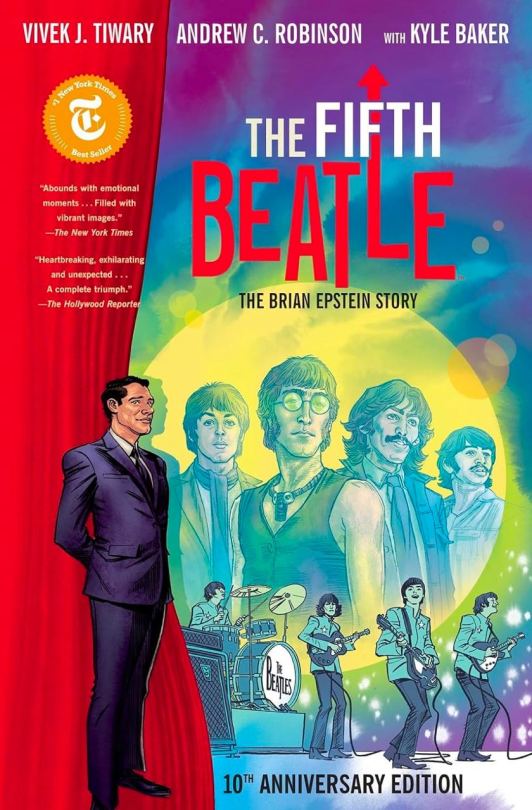
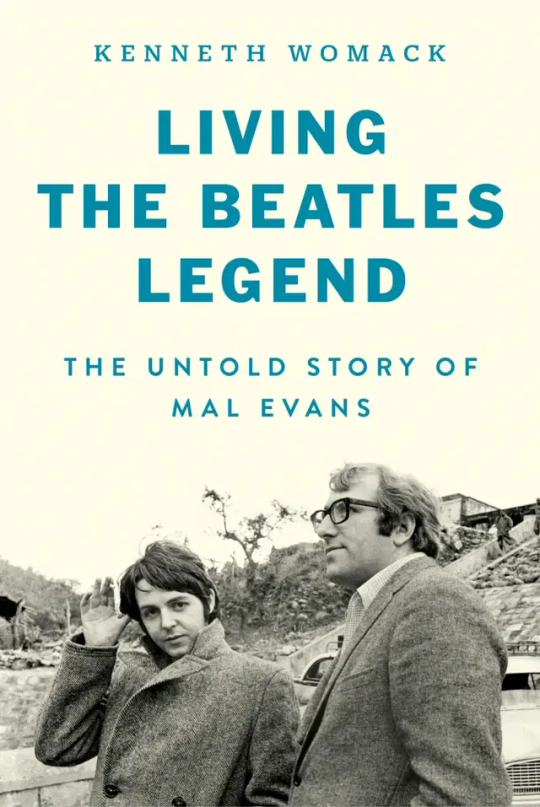
The Fifth Beatle (10th Anniversary edition) by Vivek Tiwary 🍏
Living the Beatles Legend: The Untold Story of Mal Evans by Kenneth Womack ⏰
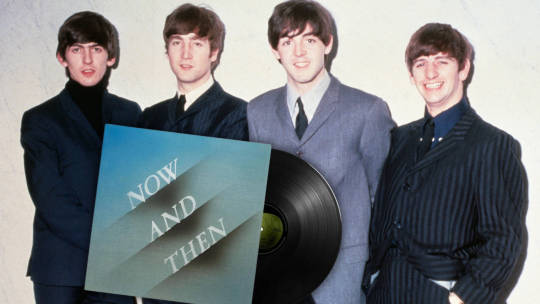
Now and Then, new Beatles single!! 📀
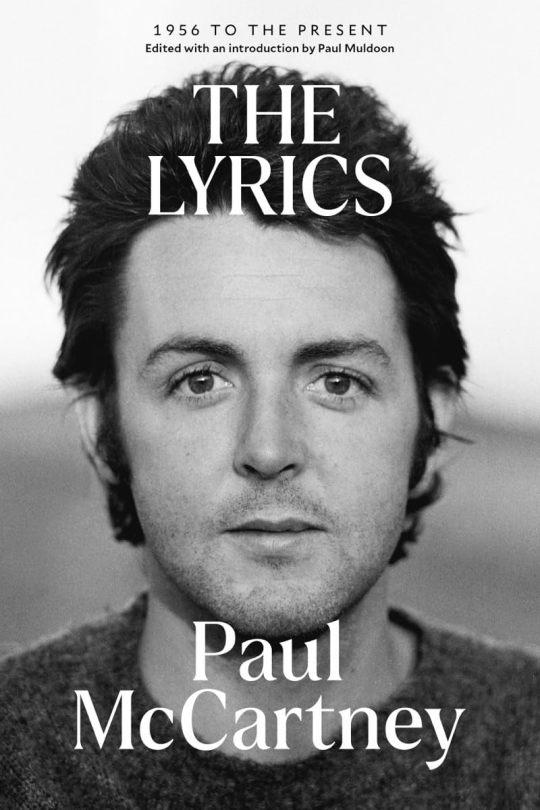
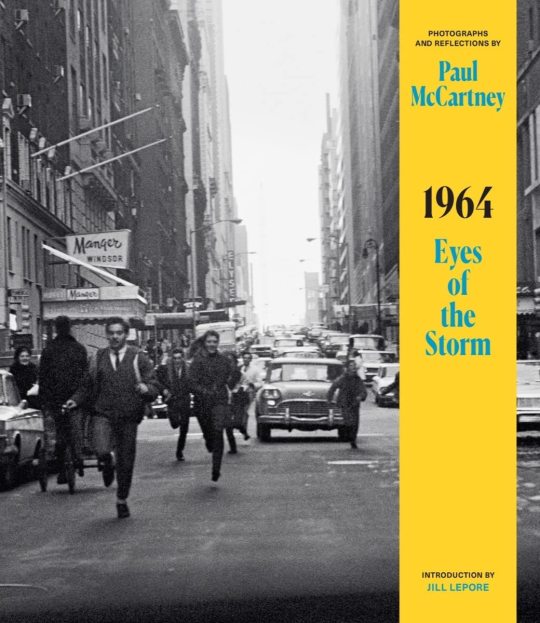
The Lyrics: 1956 to Present by Paul McCartney and Paul Muldoon (now in Paperback) 🎁
Eyes of the Storm by Paul McCartney 📸
Related AKOM podcasts:
Reclaimed Weekend AKOM Talks w/ May Pang
Frankensongs! AKOM Talks w/ Adrian Sinclair and Allan Kozinn
The Fifth Beatle AKOM Talks w/ Vivek Tiwary
The Mal Evans Story AKOM Talks w/ Ken Womack
Eleanor Rigby: (The Lyrics podcast)
Now and Then Reactions (IamtheEggpod)
#AKOM#recs#we aren't getting kickbacks#LOL#just thought we'd share our recs#another kind of mind#beatles
39 notes
·
View notes
Photo
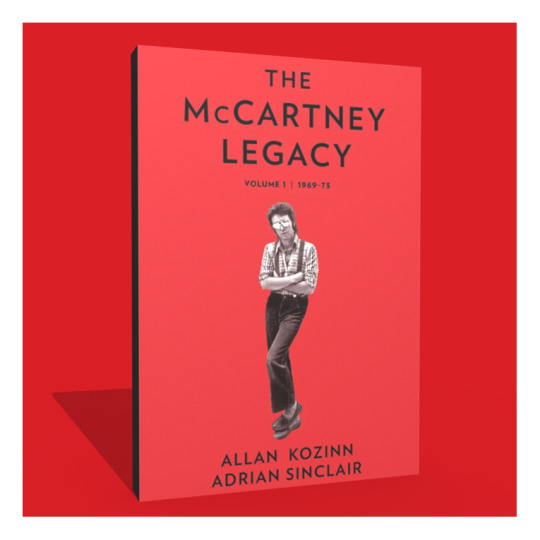
The McCartney Legacy Volume 1: 1969-73 is due out this year from Allan Kozinn and Adrian Sinclair. The authors are likening this to the job Mark Lewisohn is doing for The Beatles on his “Tune In” trilogy project. The project has evolved somewhat since it was conceived 8+ years ago, and it will now be a fully fledged biography of Paul’s life, and hundreds of people have been interviewed for the project (including many people who have never spoken about this period before). The authors assure us that there will be plenty of surprises for even the most well-read Macca fan.
21 notes
·
View notes
Photo
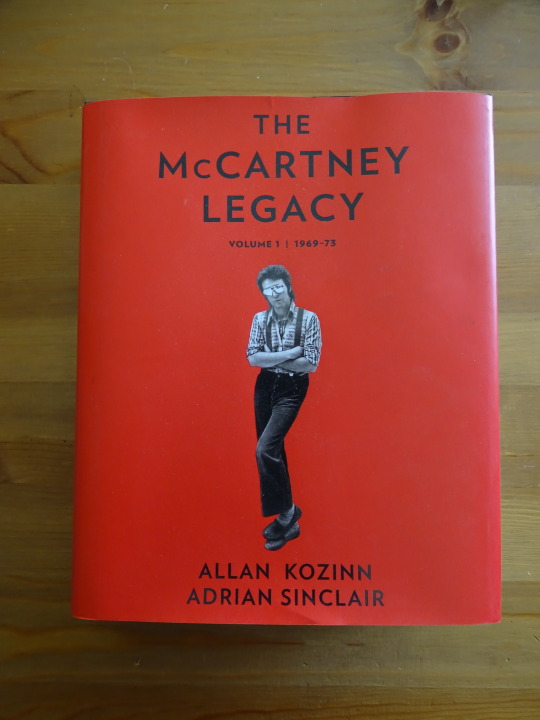
The McCartney Legacy Volume 1: 1969-1973 (2022) Allan Kozinn and Adrian Sinclair (720 pages)
Oh boy, that was a whole lotta Macca. I hope those authors have the next volume ready in about 25 years.
0 notes
Video
youtube
Bonus Episode: THE MCCARTNEY LEGACY WITH ALLAN KOZINN AND ADRIAN SINCLAIR
0 notes
Link
0 notes
Text
When Lindsay-Hogg wondered how they would handle George’s absence at the final concert—he proposed saying that George was ill—John nonchalantly suggested that if he didn’t return the following week, they’d call Eric Clapton, the star guitarist of Cream (and before that, the Yardbirds), who George had brought in to play the solo on ‘While My Guitar Gently Weeps,’ during the White Album sessions.
Clapton, asked if he had heard about Lennon’s suggestion, refused to take it seriously, except as an indication of the state of the Beatles’ relationship. “That would have been a quip, on John’s part,” Clapton explained. “You see, you get involved with a gang like that—they were a tough bunch of lads, you know. They’d say things like that to hurt one another. They could be very spiteful to one another. Because they were trapped with one another. I got used as a pawn quite a lot after George had asked me to do [‘While My Guitar Gently Weeps’]. John would use me to get back at Paul or get back at George. You didn’t really know that this was going on, but you could presume it.”
— The McCartney Legacy, Volume 1: 1969 – 1973 by Allan Kozinn and Adrian Sinclair (2022)
#The Beatles#(How we break each other's hearts and cause each other pain)#The McCartney Legacy#(Using someone to get back at the other)#(The high school dramatics of it all)#Allan Kozinn and Adrian Sinclair#1969#2022
96 notes
·
View notes
Text
“Originally John Morris [Wings tour manager] had asked me to talk Paul out of his idea to have a double-decker bus,” said Salter. “But instead of me convincing him it was a bad idea, he convinced me what a great idea it would be.”
[…]
“I sent Tom off with them to get a bus, I was hoping for a Mercedes with a bathroom in it—a tour bus. He and Paul came back grinning like crazy with this open top London transport bus with a top speed of 38 miles an hour.”
— The McCartney Legacy, Volume 1: 1969 – 1973 by Allan Kozinn and Adrian Sinclair (2022)
He’ll never beat the bus obsession allegations.
#Paul McCartney#Buses#Truly a McCartney legacy#Wings#1972#Allan Kozinn and Adrian Sinclair#Jim Morris#Tom Salter
129 notes
·
View notes
Text
“Sometimes—well, nearly always—we’d go home at night and find about 20 girls outside the front gate who seemed to have been standing there forever. They would almost spit at me and say, ‘I hate you, you’re horrible. Why didn’t he marry Jane Asher?’ These stupid kids painted nasty things—really crude messages—all over the walls and played the radio loud. If they saw Heather coming home from school they would shout out, ‘Your mother is horrible.’ Though I tried not to take any notice, all this got me down.”
— The McCartney Legacy, Volume 1: 1969 – 1973 by Allan Kozinn and Adrian Sinclair (2022)
#Linda McCartney#Paul McCartney#Fame#(Linda and Yoko really went through a lot there’s no question)#The Beatles#The McCartney Legacy#Allan Kozinn and Adrian Sinclair#2022
68 notes
·
View notes
Text
Paul later offered an analytical view of [Henry] McCullough’s and [Danny] Seiwell’s departures, but his analysis showed that he had not quite internalized the lesson of the band’s disintegration; in fact, he remained in denial about the musical issues behind McCullough’s and Seiwell’s resignations.
“When I came out of the Beatles, I got slated for being a bit too heavy with the other guys in the band,” he said. “It was a bit as if I was taking over as the manager. I thought with the new band, I’ll give them total freedom, so no one can accuse me of that again . . . and you can’t do that either. You started to have people saying, ‘Hey man, c’mon, produce us.’ No one would take up the baton, the role. So I came back to that. “The whole of ‘Wings Mark I’ was to see if that could be done. But there was too much indecision, and I wasn’t willing enough to take the thing by the scruff of the neck and say, ‘Look, I think we’ve gotta organize the solos you’re gonna play.’ It was a bit like we’re gonna be the Grateful Dead and we’re just gonna play what comes up. But to do that you’ve gotta know each other for a long time.”
[…]
Henry was surprised when Paul telephoned, but he agreed to a meeting at MPL. They smoked a couple of joints and downed half a bottle of whisky, while Paul asked Henry what he was up to and told him some tales of Lagos. “Look,” Paul said, “I know we’ve had our differences, but I really appreciate the time you’ve been with the band, and I want you to have this.” He handed Henry a check for £5,000 ($12,000) and a flight case full of guitar strings.
McCullough was touched by the gesture, but he was bemused by Paul’s indifference to whether the fracturing of Wings suggested problems with his approach to running a band. “Two of the band members in Wings walked out in the same week for different reasons, and he never asked why,” Henry mused. “You can take from that what you want.”
— The McCartney Legacy, Volume 1: 1969 – 1973 by Allan Kozinn and Adrian Sinclair (2022)
#Paul McCartney#Wings#(As a fan really appreciate this insight)#(Really puts into perspective the valid criticisms George especially had during the last few Beatle years)#(My friend Paul you needed to give up control from time to time and really listen)#(As Lennon once said - they all had egos)#The McCartney Legacy#Allan Kozinn and Adrian Sinclair#Henry McCullough#Denny Seiwell
59 notes
·
View notes
Text
“Individually, each of the Beatles was great to be with,” recalled John Kurlander, a fledgling EMI engineer at the time of the Abbey Road sessions. “They were funny, warm, friendly—really a delight. If there were two of them, that was also great. If there were three, it could be a little dicey, but generally, it was fine. But when all four were together, they closed ranks, and it would be horrible. It didn’t matter how any of them had treated you on his own; when all four of them were in the room, everyone else was treated as an outsider.”
— The McCartney Legacy, Volume 1: 1969 – 1973 by Allan Kozinn and Adrian Sinclair (2022)
#The Beatles#(This band in a nutshell)#Band Dynamics#The McCartney Legacy#2022#Allan Kozinn#Adrian Sinclair#John Lennon#Paul McCartney#George Harrison#Ringo Starr
330 notes
·
View notes
Text
Obvious as the [McCartney] album title may seem, Paul did not settle on it immediately. Toying, at first, with calling it “I’m the One It Hit the Most”, a reference to the still unannounced Beatles split, Paul settled on McCartney after learning that a report he had read in the music press was either incorrect or misconstrued. “I’d seen something that made me think, ‘Oh, John’s got a new record out, and it’s called Lennon,” he remembered. “I thought, ‘Oh wow! That’s great! Oh boy, I missed that boat.’ And it turned out not to be so. So, I thought, that’s a great idea, though, just call it your surname. So, I just made my first record McCartney.”
— The McCartney Legacy, Volume 1: 1969 – 1973 by Allan Kozinn and Adrian Sinclair (2022)
Lennon’s influence ♡
#Paul McCartney#John Lennon#The Beatles#2022#The McCartney Legacy#Allan Kozinn#Adrian Sinclair#I’m the One It Hit the Most
128 notes
·
View notes
Text
February 24 [1970] began with an unwelcome distraction. Paul was used to fans loitering at the gates to his London home, documenting his every move in diaries and candid snaps. But neighbors were worried about a small group of girls sleeping on his driveway. One American fan, Carolyn Mitchell, had been maintaining a vigil outside Paul’s home for 13 months, not skipping a single day during that time. Since Paul and Linda wed, neighbor Evelyn Grumi, who lived opposite the McCartneys with her husband and two children, had noticed a conscious shift in the behavior of the fans. “The girls sit on our wall,” she told a reporter from the Sunday People, several weeks later. “I wouldn’t mind if they just sat, but they play their transistors [radios] very loudly and shriek and giggle, and shout. If you try to talk to them reasonably, they just hurl abuse and bad language at you. Really awful language.”And nothing was off-limits. The rabid crowd had taken to stealing Paul’s mail, and on occasion breaking into his house, pilfering handfuls of Linda’s photographs, and other trinkets as souvenirs with each sortie. Paul and Linda agreed action was needed. They called the local police, but when the constables arrived at Cavendish Avenue, they explained that since no laws had been broken, there was nothing they could do. “We can only move them on by threatening an obstruction charge. They stand outside all night, sometimes in the bitter cold—I don’t understand it,” a local officer explained. Come rain, hail, or shine, the overzealous fans remained, 24 hours a day.
— The McCartney Legacy, Volume 1: 1969 – 1973 by Allan Kozinn and Adrian Sinclair (2022)
#Paul McCartney#Linda McCartney#1970#The McCartney Legacy#[Fame is fun :) ]#Allan Kozinn and Adrian Sinclair)#Fame#The Beatles#(Am I going to have to make a compilation of all the instances of hyper intense fame these guys were subject to?)#(13 months - just think about it.)
90 notes
·
View notes